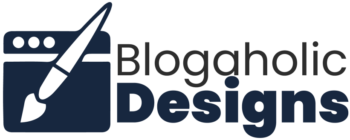There are a number of elements that make up a website; the content, the design, and the code; and of these, the latter is amongst the most important aspects – the code is what makes the whole thing work together.
Essentially, if you want your site to be successful then you need to know how to code a website.

The good news is that there are many resources available online for free or at very low cost which will teach you how to code a website from scratch.
This article will show you some of the easiest ways to code your site and ensure that you have a site that your business can be proud of.
Coding A Website: Key Terms
Before we take a closer look at the specifics of coding, there are a few basic elements that you need to remember when coding your website, and these include:
- HTML (HyperText Markup Language) – this is the language that all websites are written in. It’s basically a set of tags that allow you to format text and create links between pages.
- CSS (Cascading Style Sheets) – this is used to style the layout of your website. The best way to learn how to code a website is by using a WYSIWYG editor such as Dreamweaver or Notepad++. These editors allow you to see how your page looks in real-time without having to worry about any technical issues.
- JavaScript – this is another programming language that allows you to add functionality to your website. For example, you could add social media buttons to your site which would allow visitors to share your content via Facebook and Twitter.
- PHP (PHP Hypertext Preprocessor) – this is a server-side scripting language that allows you to write scripts within your web pages. They are often used to generate dynamic content, such as displaying comments or polls.
- MySQL (MySQL Database Management System) – this is a database management system that stores data on your computer. It’s usually used to manage databases for websites.
How To Code Your Website
Now that you know what you’re going to be coding, it’s time to start writing! If you want to learn how to code your own website, then you’ll need to do a few things first.
What Type Of Website Do You Want?
Firstly, you’ll need to figure out what type of website you want to create. Do you want to sell products? Or do you just want to showcase your photography skills?
Choose A Language
Once you have decided what kind of website you want to build, you’ll need to decide which language you want to use.
PHP is by far the most common programming language used in web development today but, as we have seen, there are a range of options.
Choose A Platform
The next part of learning how to code a website involves choosing a platform. There are a number of ways to go about doing this, but the two main options are WordPress and Joomla.
Both platforms are easy to install and run, and they both have plenty of tutorials available online.
However, they are not the only option, and you should always consider the pros and cons of each one before making your decision.
Choose A Framework

Next, you’ll need to pick a framework. Frameworks are sets of tools that help you develop websites quickly and efficiently.
They usually include a template engine, database access tool, and a set of classes that allow you to write clean, organized code.
There are many different frameworks available. Some of them are better suited to certain types of projects, so it pays to research them carefully.
When deciding which framework to use, you’ll need to consider whether you want to use one that’s open-source or one that’s commercial.
Open-source frameworks tend to be less expensive, but they may not offer as many features as their commercial counterparts.
Pick A Hosting Company
Finally, you’ll need to choose a hosting company. Hosting companies provide space on their servers to store your files.
They also provide a place for visitors to view your website when they visit your domain name; whatever your reason for wanting to create a website, you’ll need to think about where you want to host it.
You can either use a hosted solution like Bluehost, or you can use something called a VPS (virtual private server).
The latter is a dedicated server that you rent from a provider, and it gives you complete control over all aspects of your website.
You will most likely end up spending quite a bit of money on hosting services, but it’s worth doing your homework before choosing a company.
Make sure that they offer good customer service and that they have enough resources to handle high traffic levels.
Write Some Code!
After you’ve chosen everything else, you’ll need to write some code. There are two ways to approach this: you can hire someone to do it for you, or you can learn how to code yourself.
If you don’t feel comfortable learning how to code, then you might want to find a developer who specializes in the languages you want to use.
This will cost you more money, but it could save you a lot of hassle down the line.
However, if you really want to learn how to program, then you should start with HTML.
It’s a markup language that allows you to add formatting to text. For example, you can make text bold, italicize it, change its color, or even give it an underline.
HTML isn’t very complicated, but it does require a little practice. Luckily, there are plenty of free tutorials online, such as Codecademy, that will teach you how to program using HTML.
Once you are familiar with HTML, you can move on to CSS. This is a style sheet language that allows you to format elements within your page.
You can change things like font size, color, background images, etc.
The next step is JavaScript. This is a scripting language that makes it easy to manipulate objects on screen. As an example, you can click buttons, scroll pages, play videos, and much more.
JavaScript is often used together with other programming languages, such as PHP and Python.
If you know how to program using these languages, then you’ll be able to combine them to build complex web applications.
Final Thoughts
Learning how to program can take time, especially if you’re just starting out. However, once you get the hang of it, it’s a great way to customize your site and ensure that it is built to your exact needs and preferences.
You can even earn extra cash building websites for other businesses!
- The 20 Best Blogging Courses That Are For Beginners - December 7, 2022
- 20 Best WordPress Plugins For Blogs For Effective Blogging! - December 7, 2022
- 5 Excellent Affiliate Marketing Courses To Learn - December 6, 2022








